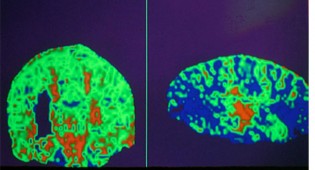UK MPs: ‘Prosecute Porn Sites under Obscenity Laws’
 LONDON – Members of the British Parliament have called for the criminal prosecution of adult websites that do not employ age-verification measures to ensure minors cannot view explicit sexual content.
LONDON – Members of the British Parliament have called for the criminal prosecution of adult websites that do not employ age-verification measures to ensure minors cannot view explicit sexual content.
“Publishing adult pornography in a way that makes it readily available to children is likely to be an offence under the Obscene Publications Act 1959,” according to a formal report filed by the Culture Media and Sport Committee. “[W]e are concerned that no prosecutions have been brought despite the proliferation of pornography sites which make no attempt to restrict access by children.
“We welcome the government’s declared intention to legislate to clarify the law in this area,” the report continues. “In the meantime, we urge the prosecuting authorities to use the existing law to crack down on the worst offenders in order to put pressure on all suppliers of hardcore pornography to make greater efforts to ensure that such material is accessible only by adults.”
Obscenity prosecution of adult websites is more complicated than it seems at first glance. The Authority for Television on Demand — the UK regulatory body charged with ensuring proper behavior among online and real-world broadcasters — has fined several adult content providers in recent years, and even shuttered a few websites because they did not try hard enough to exclude children. The UK’s obscenity statutes, though, were written well before the advent of the Internet Age and have not kept pace with the times. No one is certain how the courts would view obscenity charges against online operators whose crime amounted to failing to babysit someone else’s youngsters. That is doubly true since January, when the government mandated internet service providers filter out pornography by default.
In addition, as even the committee has admitted, much online porn is distributed by overseas companies from overseas servers. UK authorities have yet to test extraterritorial jurisdiction in the online world. Even for those websites inhabiting a .uk URL and presumably based in the UK, WHOIS databases often contain incorrect or hazy information about who owns the sites.
The committee has proposed a solution: Hold .uk registrar Nominet responsible for ensuring the accuracy of registration information and for insisting registrants install mechanisms to keep kids away from material they’re not meant to see.
“We have no reason to suppose that Nominet has either the resources or inclination to police the internet,” the committee’s report stated. “Age verification, while ideal, is not the only way of preventing children from accessing unsuitable content. However, we believe that no .uk site should offer unimpeded access to adult pornography to children. This should be made a condition of registration.”
Among the committee’s suggestions for keeping children at a distance are forcing adult website operators to install pay walls that verify a credit card owner’s identity, mandating the installation of metadata that would allow filters to be more effective at tagging porn, and shielding adult content behind a warning page. Ideally, every adult website should be required to employ all three methods, the report noted.
Comments are closed.





